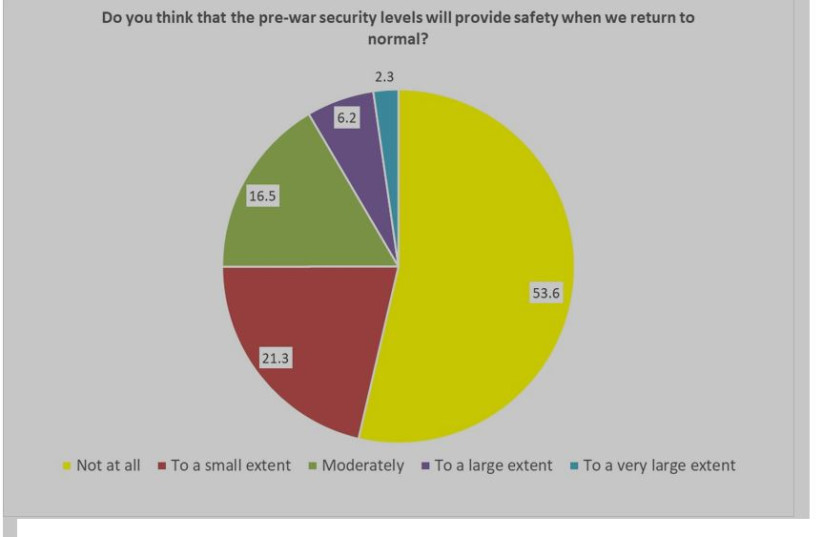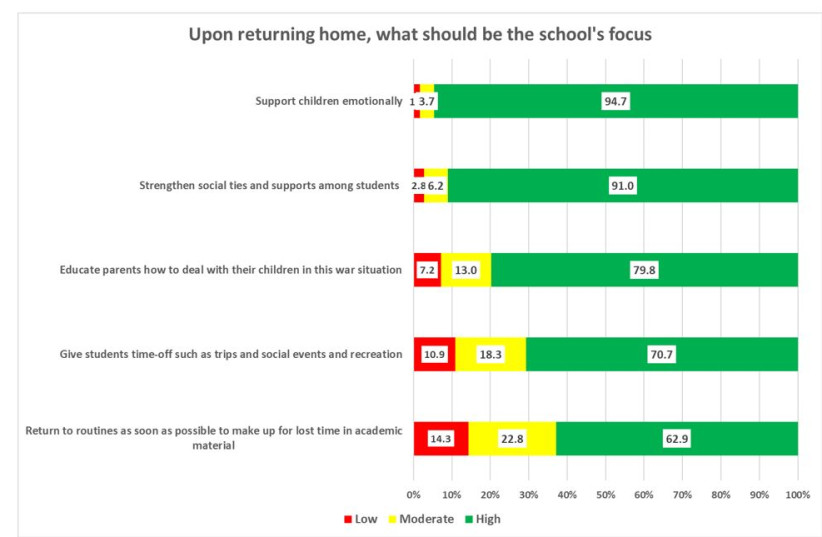Crucial insights have emerged regarding the priorities of the Sdot Hanegev Regional Council kibbutzim, moshavim, and community settlements greatly affected by the barbarous Hamas incursion on October 7. These communities are focused on the psychological state of children and youth as the foremost concern, and there is a collective call for enhanced security measures.
A comprehensive survey of 1,128 respondents conducted by the Negev Fields Council in collaboration with the Hebrew University of Jerusalem (HU) underscores the significance of providing residents with a platform to voice their opinions and influence decisions about the return to their homes, educational priorities, and personal security.
The survey was led by Prof. (Emeritus) Rami Benbenishty, Prof. Ruth Pat-Horenczyk, Prof. Miriam Schiff, and Dr. Ohad Gelber from HU, with special assistance from Mr. Eli Klingberger and in collaboration with Hila Barzilai, Ms. Irit Segal, Dr. Liraz Cohen-Biton from the Negev Fields Council. Of all the respondents, 66% were women, 27% were men, and 7% chose not to specify their gender.
The survey was conducted over the Internet using links distributed by the local leadership between December 14 and 29, 2023. Notably, 84% of the respondents have children in the education system, half of them having at least three children in the kindergartens and schools.
While most questions were closed-ended, participants were also given the option to provide free-text responses, leading to a separate report specifically addressing those inputs.

The research underscored the significance of providing residents with a platform to voice their opinions and influence decisions about the return to their homes, educational priorities, and personal security.
Prof. Benbenishty stressed the need to continue this inclusive process in the coming months, extending it to other communities in the South and North to stay attuned to the challenges faced during times of conflict.
The priorities of the residents
The survey identified the “government announcement to destroy Hamas” and “additional budgets for the community” as significant factors that would influence their decisions to return to their homes.
Mental health emerged as the top priority for schools, as well as enhancing social ties among youth, reflecting the community’s concern for their well-being.
A majority of respondents expressed skepticism about the adequacy of pre-war security levels after the war. The consensus was that improvements are crucial in all security areas, especially on the allocation of weapons to local emergency units and bolstering camera surveillance.
Benbenishty said that ongoing dialogue to empower residents and address the unique challenges faced by the community in times of war was very important. These findings serve as a foundation for continued collaboration and action to ensure the well-being and security of the Sdot Hanegev community, he noted.
The researchers emphasized the importance of listening to the voices of the community and incorporating the collective voice into decision-making and policy formulation. “As the circumstances change over time, it is important to keep a finger on the pulse and see what are the current needs and attitudes of the residents of these devastated communities.”

They added that although most residents express multiple needs and difficult life circumstances, the majority are willing to volunteer to help others, and more than a fifth already volunteer to help others.
The main factors influencing the residents’ decisions to return to their homes are highlighted in survey responses. A significant majority of residents (62%) cited the ‘government announcement on the eradication of Hamas’ as a key factor, while 50.2% identified ‘additional budgets for the community’ as another crucial consideration.
In contrast, fewer residents mentioned changes in the local leadership and the overall appearance of their settlement as factors influencing their decision to return.
As for the significance of employment in the decision, 57% of respondents indicated that employment is not a decisive factor for them. Among those who consider employment to be a factor, a substantial majority (38%) believe they should return as soon as possible, while only 5% prefer not to return immediately.
In assessing the various needs and priorities upon the return of children to educational frameworks, respondents with children were asked to prioritize these elements.
The results reveal that parents primarily prioritize the educational environment’s impact on their children, emphasizing the emotional and social aspects they wish the school to address. The need to emphasize academic achievements is given considerably less attention.
